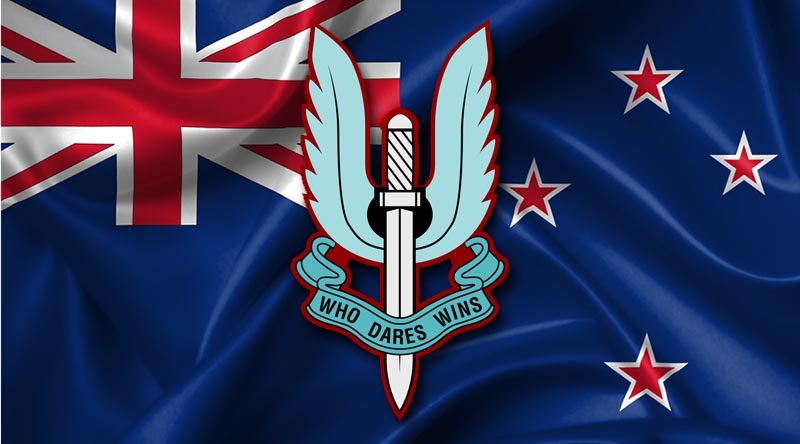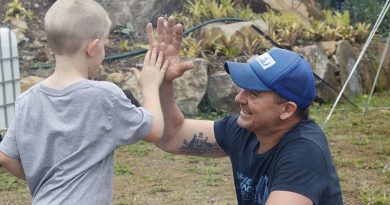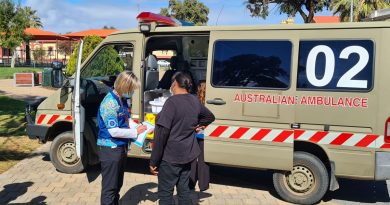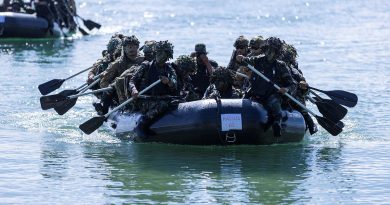NZSAS cleared in New Zealand ‘war-crimes inquiry’
Share the post "NZSAS cleared in New Zealand ‘war-crimes inquiry’"

New Zealand’s Chief of Defence Force Air Marshal Kevin Short has stood behind NZSAS operators following the release of a report from the Inquiry into Operation Burnham.
Operation Burnham was a joint NZSAS and Afghan operation in 2009 to target identified insurgents responsible for the death of New Zealand Lieutenant Tim O’Donnell.
A book by two New Zealand journalists later made damning accusations, amounting to war crimes, about the operation and the New Zealand SAS.
An Inquiry, led by Sir Terence Arnold and Sir Geoffrey Palmer, was established to look into the allegations.
New Zealand Attorney-General David Parker said the findings of the Inquiry exonerate the NZSAS operators involved in the operation.
“The report finds that the actions of the NZSAS on the ground during Operation Burnham were both professional and lawful, because there were insurgents present, which the allegations in the book had denied,” Mr Parker said.
The Inquiry said the operation was not a deliberate revenge attack on innocent civilians, as alleged in the book – but did concede that some civilians, including a girl under 10 years old, were killed alongside at least three and possibly more armed insurgents.
While the Inquiry completely exonerates the NZSAS operators in the execution of the operation, it did say there were serious failings by the New Zealand Defence Force to correctly brief government and inform the public about the operation – even long after the operation, when it knew that false information was circulating.
The Inquiry found that one senior NZSAS officer in Afghanistan showed an “inexcusable lack of care and rigour” in misrepresenting the findings of an independent in-country report – and that the NZDF failed to adequately remedy incorrect statements and advice given earlier, even after it knew they were wrong.
Rather than it being a cover-up or conspiracy, however, the Inquiry said it was down to failures of organisational structure, systems and culture – and, most concerning to Mr Parker, was that these institutional failings “undermined two fundamental principles of our democracy – civilian control of the military and ministerial accountability to parliament”.
The New Zealand Minister for Defence at the time of Operation Burnham Wayne Mapp also came in for heavy criticism.
Attorney-General Parker said that while Dr Mapp was initially misled by the New Zealand Defence Force as to the possibility of civilian casualties in the operation, he continued to hold to the false narrative when answering journalists’ questions even after he was made aware of the truth.
The next Minister for Defence Jonathan Coleman launched an enquiry of his own following certain TV allegations – around which Mr Parker said “he handled himself well – NZDF did not. These events in 2014 showed a surprising level of ineptitude and disorganisation within NZDF headquarters”.
While the Inquiry found that the book in which the allegations against the NZSAS were made contained many errors and maligned the integrity and professionalism of the NZSAS personnel involved in Operation Burnham on the night in question, Mr Parker said that in many important respects the book was right and, without the book, the findings of the report and its important recommendations would not have been possible.
The Inquiry made four recommendations:
- An expert review group should look at NZDF’s organisational structure, record-keeping and retrieval processes to assure the Defence Minister they meet international best practice.
- An office of the Independent Inspector-General of Defence (located outside the NZDF organisational structure) should be established to facilitate independent oversight of NZDF and enhance its democratic accountability.
- A Defence Force Order should be promulgated setting out how allegations of civilian casualties should be dealt with in-theatre and in New Zealand.
- The government should set effective detention policies and procedures in relation to people detained by, or with the involvement of, New Zealand forces overseas and how allegations of torture by such persons are treated.
Mr Parker said the government had accepted all the recommendations in principle.
In response to the Inquiry report, Chief of New Zealand Defence Force Air Marshal Kevin Short issued the following statement.
“I would like to acknowledge the work of the Inquiry team headed by Sir Terence Arnold and the Rt Hon Sir Geoffrey Palmer – and I welcome the Inquiry’s Report.
New Zealand’s armed forces are well respected internationally – whether providing humanitarian aid, reconstruction, training, peace keeping, or in combat. They are held in high regard for their skills, resourcefulness, their humanity and their courage.
Core to all we do are the values of the New Zealand Defence Force – courage, commitment, comradeship and integrity – values that are exemplified by the Special Air Service Regiment who are the most highly trained of all our personnel.
I want to comment first about Operations Burnham and Nova. I’ll then comment on Operation Yamaha.
As Chief of our Defence Force, I am pleased that the Inquiry’s Report has found that during Operations Burnham and Nova, our personnel operated with proper authorisation and conformed to the rules of engagement and international humanitarian law.
The operations were lawful, justified, and were planned meticulously.
Our forces operated professionally, and to the high standards we expect of our personnel.
However, this Inquiry Report demonstrates that we let our frontline service people down through a series of organisational and administrative failings that saw incorrect information provided to Ministers and the New Zealand public. And for that, I am deeply sorry.
Operation Burnham was a complex and dangerous operation, professionally planned and carried out, and involving a number of engagements with armed insurgents. One person was killed by New Zealand ground forces, and this action was in accordance with the rules of engagement and international humanitarian law.
The report concludes that, as well as insurgents, it is likely there were civilian casualties either killed or injured during the operation. Importantly, it also confirms New Zealand forces were not involved.
The loss of any life is significant, even more so if a civilian is involved in a conflict area.
Where NZDF did fall short, and where we are accountable, is in our briefings to Ministers and the public, and our administrative systems and processes, which fell well short of the standards we demand of our service men and women.
The errors resulted in a number of mistakes over several years and saw inaccurate information about the possibility of civilian casualties given to Ministers and New Zealanders. The mistakes were compounded when the inaccuracies were repeated.
The Inquiry makes it clear that there was no organised strategy within the NZDF to cover up our role in Operation Burnham or the possibility that there were civilian casualties however inaccurate statements were made.
NZDF acknowledges and regrets these mistakes. If we are to maintain the trust and confidence of the people we serve, we must be accountable. We must be better at the way we record, store and retrieve information, and then subsequently present that information to Ministers and the public. I will ensure this happens.
A number of changes to NZDF’s structure and systems recommended by the Inquiry are already underway. I am committed to do all I can to prevent this kind of mistake being repeated.
In regards to Operation Yamaha, I note the Inquiry finding that one of our soldiers has struck a prisoner after being arrested by Afghan police. The inquiry considers the way in which the prisoner was treated was inappropriate and did not reflect NZ values. Behaviour of this type is not what we expect, or demand, of our people.
The Inquiry has also made recommendations on evolving and complex areas of international law regarding detention during partnered operations. The NZDF will work closely with other agencies to ensure that our frontline commanders have absolute clarity around detention policies and procedures when working alongside international forces and partners.
The Inquiry acknowledged the thoughtful and careful work done in this area, and I believe it is important this work is maintained given the complexity of the legal issues being raised.
There is no question our administrative systems and processes need to be better – we need to own that and correct it. This includes reviewing how we investigate these types of incidents.
The Inquiry process was thorough and exhaustive, and we will carefully consider the findings to see if further changes are needed. I accept the recommendations for the Defence Force made by the Inquiry and will work with Ministers and other agencies to adopt them, including the establishment of an independent Inspector-General of Defence.
I would like to also acknowledge the soldiers from our SAS, and their families. For them, this report draws this matter to a close and they can now move on.
New Zealanders can be proud of the professionalism and integrity of our men and women serving around the world. They have earned our confidence and respect – and they deserve our support.
They exemplify our values of courage, commitment, comradeship and integrity.
And as the Chief of Defence Force, I would like to conclude by restating my commitment to NZDF continuing to uphold these values – we will continue to do better.”
.
.
.
.
.
.

.
.
Share the post "NZSAS cleared in New Zealand ‘war-crimes inquiry’"






Wow, so it’s just not our SAS who’s in the shit with what’s happened in Afghanistan. Reading the report at least the NZSAS have had the balls to exonerate their men and expunge their records. Now, what about what the taliban have done over the years to those poor afghanies. Absolutely abhorrent, are they ever going to be hauled before a military war crimes commission, I think not.